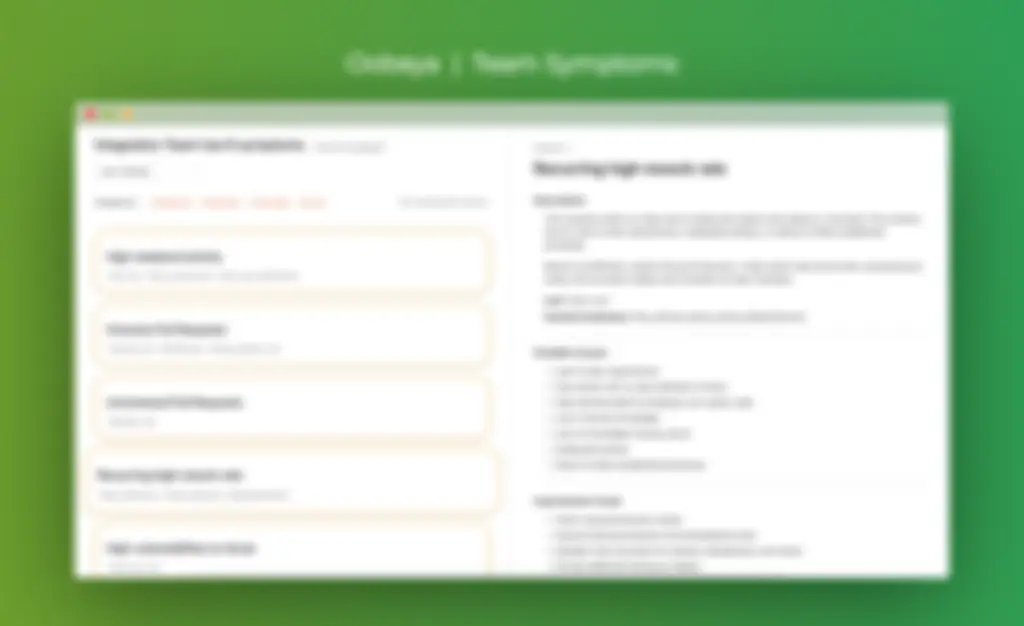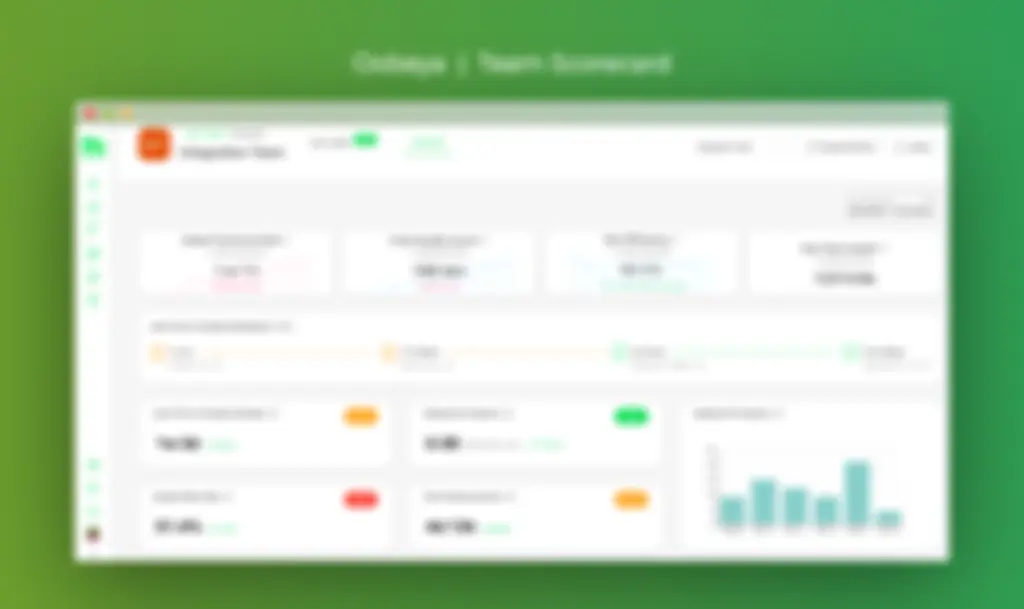In today's fast-paced digital landscape, software development organizations are under constant pressure to deliver high-quality products in a timely manner. To meet this challenge, organizations need to identify and eliminate inefficiencies in their software development processes. This is where the Oobeya Team Health Module comes in, providing a comprehensive solution to optimize team performance in software development.
The Oobeya Team Health Module is comprised of two main components: Team Symptoms and Team Scorecard. These components work together to help organizations improve team well-being, performance, and productivity.
Team Symptoms: Detecting and Addressing Problems in the Development Process
The Oobeya Symptoms module is a powerful tool for identifying and resolving problems in software development and delivery processes. The Oobeya Symptoms module collects and analyzes data from various sources to automatically detect recurring issues such as anti-patterns, bad practices, and bottlenecks that may be hindering team performance. Upon identifying these issues, the module alerts teams to potential problems and provides recommendations and solutions to resolve them. This allows teams to take proactive measures to improve their processes and avoid obstacles that could impact their performance and health. See the Oobeya Symptoms Catalog here.
 Oobeya Team Symptoms
Oobeya Team Symptoms
Available Symptoms (coming more soon)
The Oobeya Symptoms module currently includes the following symptoms:
S1 | Gitwiser - Git Analytics (VCS tools) | |
S2 | Gitwiser - Git Analytics (VCS tools) | |
S3 | Gitwiser - Git Analytics (VCS tools) | |
S6 | Sonar | |
S7 | Sonar | |
S8 | Sonar | |
S9 | Gitwiser - PR Analytics (VCS tools) | |
S10 | Gitwiser - PR Analytics (VCS tools) | |
S11 | Gitwiser - PR Analytics (VCS tools) |
Team Scorecard: A Comprehensive View of Team Metrics and Progress
The Team Scorecard provides teams with an all-encompassing view of their metrics and progress. The Scorecard automatically fetches data from integrations, eliminating the need for manual work and enabling teams to maintain standards across all their tools. The Scorecard consists of multiple team-based metrics, which come from different data sources such as GitHub, GitLab, Azure DevOps, Bitbucket, Jira, Jenkins, Sonar, Veracode, New Relic, DataDog, Dynatrace, and more. The historical data and team-based summaries provided by the Scorecard give teams deep visibility into their progress, bottlenecks, and areas for improvement, enabling them to make data-driven decisions and track the overall health of their teams.
 Oobeya Team Scorecard
Oobeya Team Scorecard
Optimizing Team Performance in Software Development
Optimizing team performance in software development requires a comprehensive approach that addresses both technical and cultural aspects of the development process. Here are some strategies to help optimize team performance:
- Clear Communication: Ensure that team members have a clear understanding of their roles, responsibilities, and expectations. Encourage open communication channels and foster an environment where team members can freely share ideas, concerns, and feedback.
- Process Optimization: Evaluate and streamline development processes to eliminate bottlenecks and inefficiencies. Encourage teams to continuously improve processes through regular retrospectives and process improvement initiatives.
- Collaboration Tools: Utilize collaboration tools such as code review, version control systems, and project management software to increase transparency, efficiency, and accountability.
- Agile Methodology: Adopt an agile methodology such as Scrum or Kanban to better manage work and continuously improve.
- Team Metrics: Track and measure team progress using metrics such as cycle time, code review, DORA metrics, and code quality metrics. Use these metrics to identify areas for improvement and track progress over time.
- Continuous Learning: Encourage continuous learning through training, mentorship programs, and skill-building activities. This helps team members stay up-to-date on the latest technologies and best practices.
- Employee Engagement: Foster a positive work environment that values employee engagement and well-being. Regularly check in with team members to understand their needs, and provide support to help them achieve their personal and professional goals.
- Data-Driven Insights: Utilize data-driven insights to make informed decisions and track progress. Tools like Oobeya's Team Health module, which includes Team Symptoms and Team Scorecard components, can help teams gather and analyze data from various sources to identify issues and track progress over time.
Optimizing team performance in software development requires a holistic approach that addresses both technical and cultural aspects of the development process. By implementing these strategies, organizations can improve the overall performance and productivity of their software development teams, delivering high-quality products in a timely and efficient manner.

